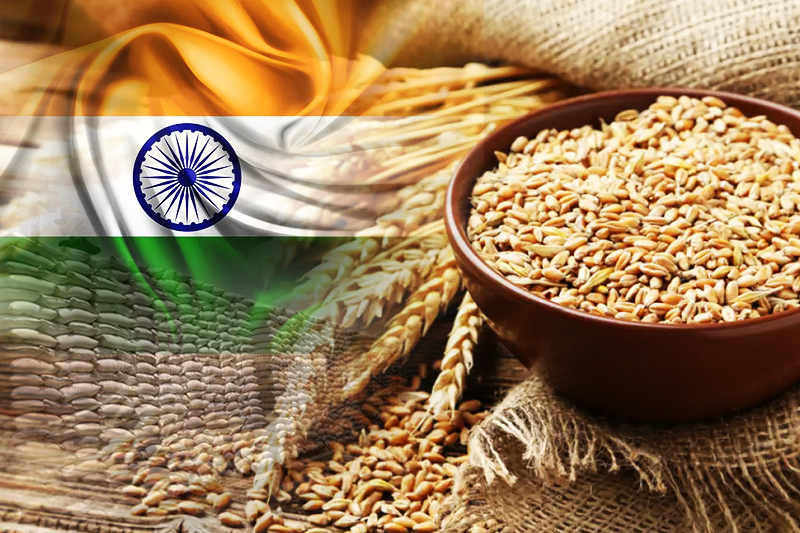India Accelerates Wheat Procurement Amid Farmers’ Protests, Aiming for a Bumper Harvest

In an unprecedented move, the Union government of India has decided to kick off its wheat procurement process from March 1, a significant advancement from the usual schedule. This decision, emerging amidst a backdrop of extensive farmers’ protests demanding better crop prices, is set to change the agricultural landscape. Farmers camped on the outskirts of the capital have been vocal about their demands for a legal guarantee for higher crop prices, among other concerns. Sanjeev Chopra, the food secretary, remains optimistic that this early procurement will proceed smoothly, especially in the key wheat-producing states of Punjab and Haryana.
A Proactive Step Forward
The government’s decision is not merely a response to the protests but also a strategic move in anticipation of an expected bumper harvest of wheat, projected at 114 million tonnes for the 2024-25 season. This forecast, buoyed by early sowing and favorable weather conditions, presents a golden opportunity for India to bolster its grain reserves. The Union government, by advancing the procurement date, aims to ensure that the harvest reaches its granaries in a timely manner, avoiding any potential logistical snags that could arise from a delayed procurement process.
Addressing the Farmers’ Concerns
At the heart of this decision, however, is the government’s intent to alleviate the farmers’ distress. By starting procurement early and enhancing the number of procurement centers, the government plans to ensure that payments to farmers are made within 48 hours of purchase. This move is seen as a critical step in addressing the discontent among the farming community, which has been vocal about the need for a more robust support system for agricultural produce. In states like Uttar Pradesh, Rajasthan, and Bihar, where procurement figures fell short of targets in the last season, the government is prepared to increase its procurement activities, thus offering a ray of hope to the farmers in these regions.
Navigating Through Challenges
Despite the optimism, the path ahead is not devoid of challenges. The massive protests by farmers pose a potential hurdle in the smooth execution of the procurement process. However, the government’s readiness to tackle these issues head-on, combined with its efforts to engage with the farmers’ concerns, signals a strong commitment to ensuring that the agricultural sector remains buoyant. Furthermore, with India’s stance at the WTO ministerial meeting, emphasizing the need for a permanent solution to ensure food security, the country is navigating a complex landscape of domestic challenges and international negotiations with a balanced approach.
Write to us
Our manager will contact you soon



